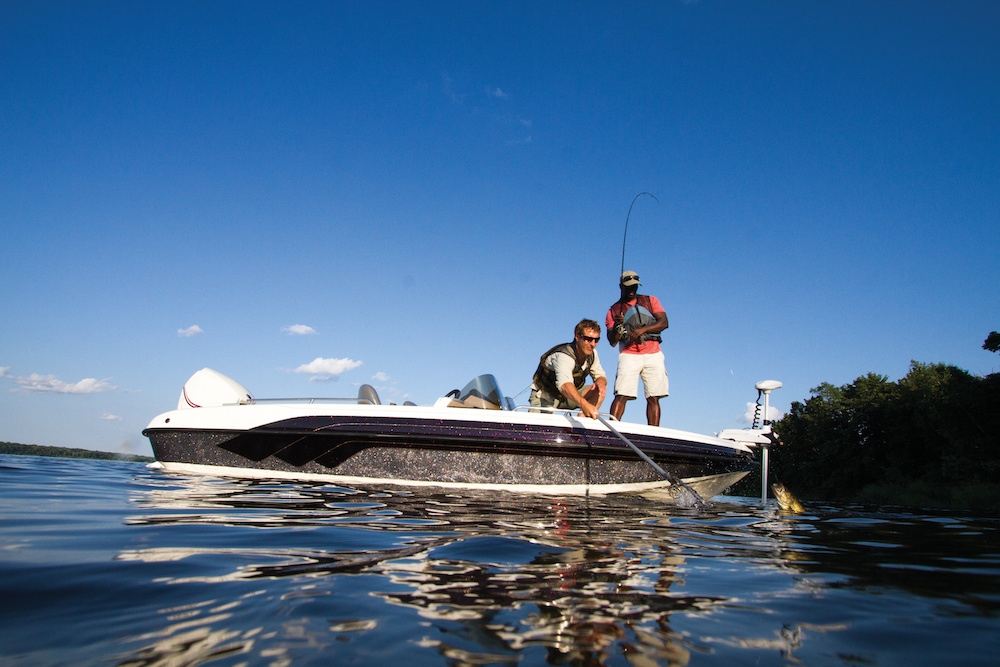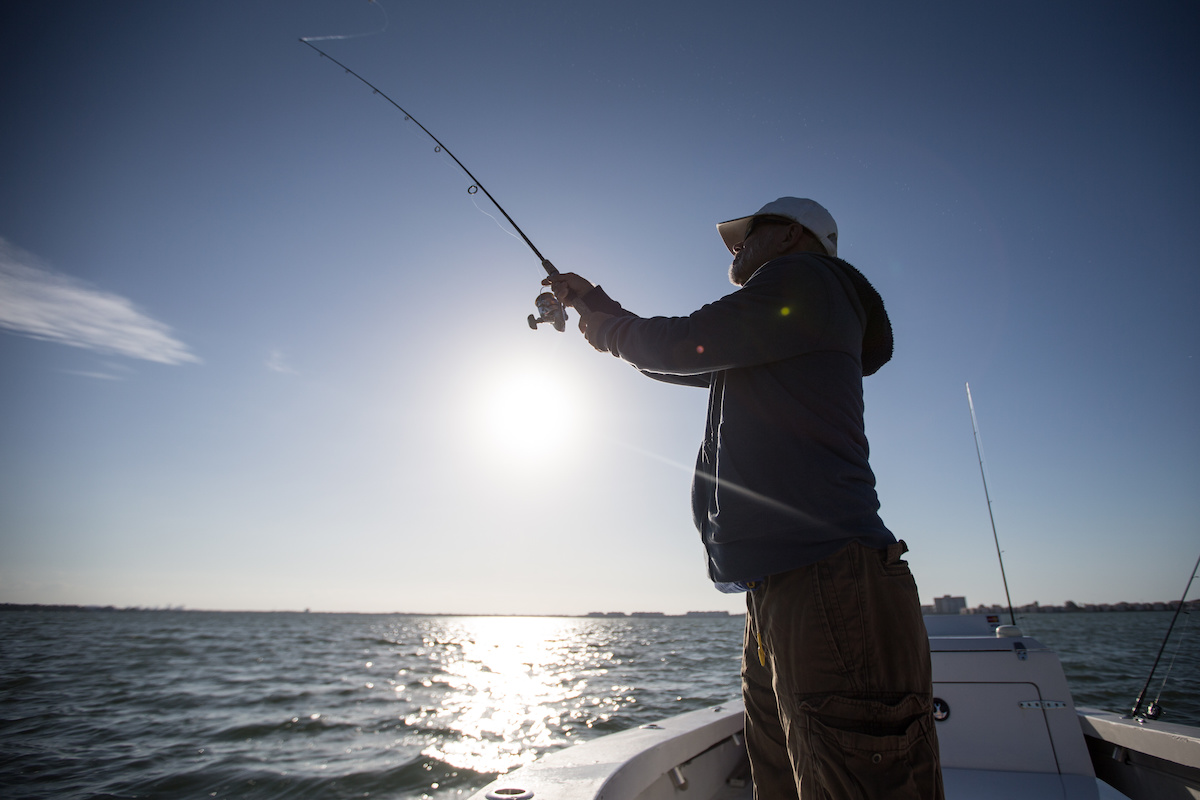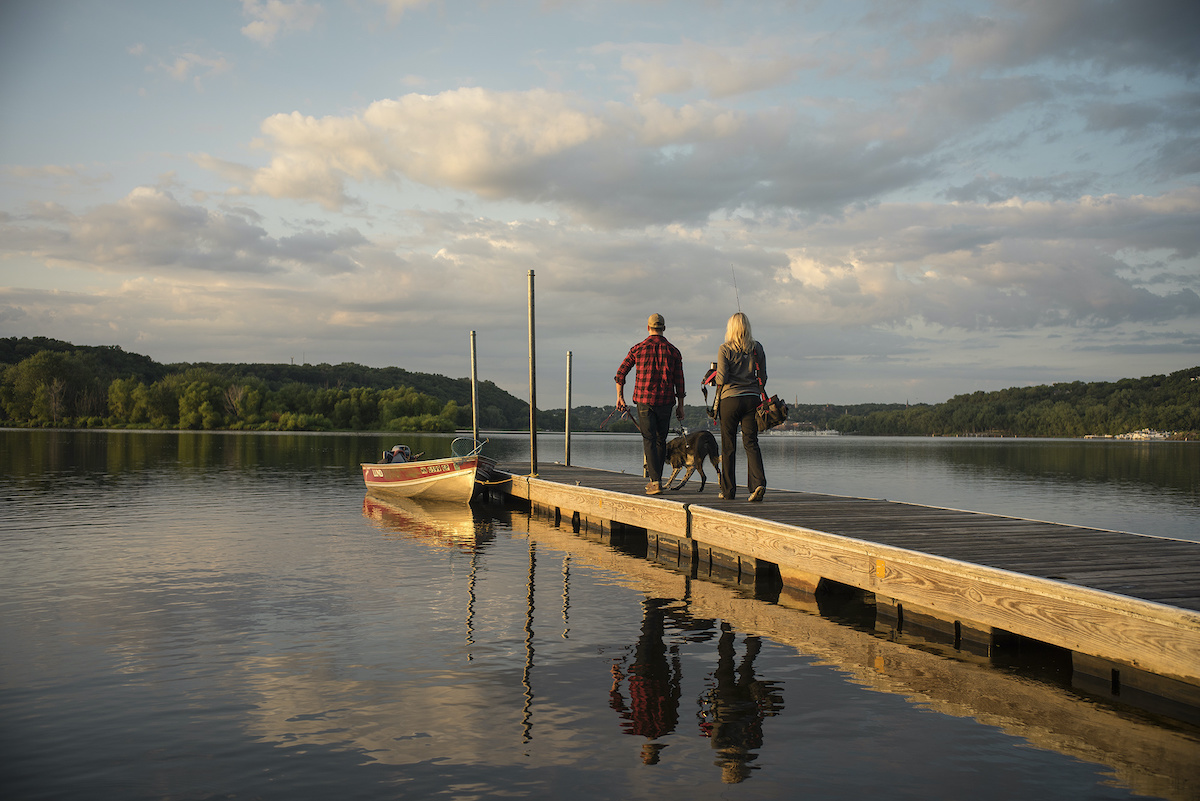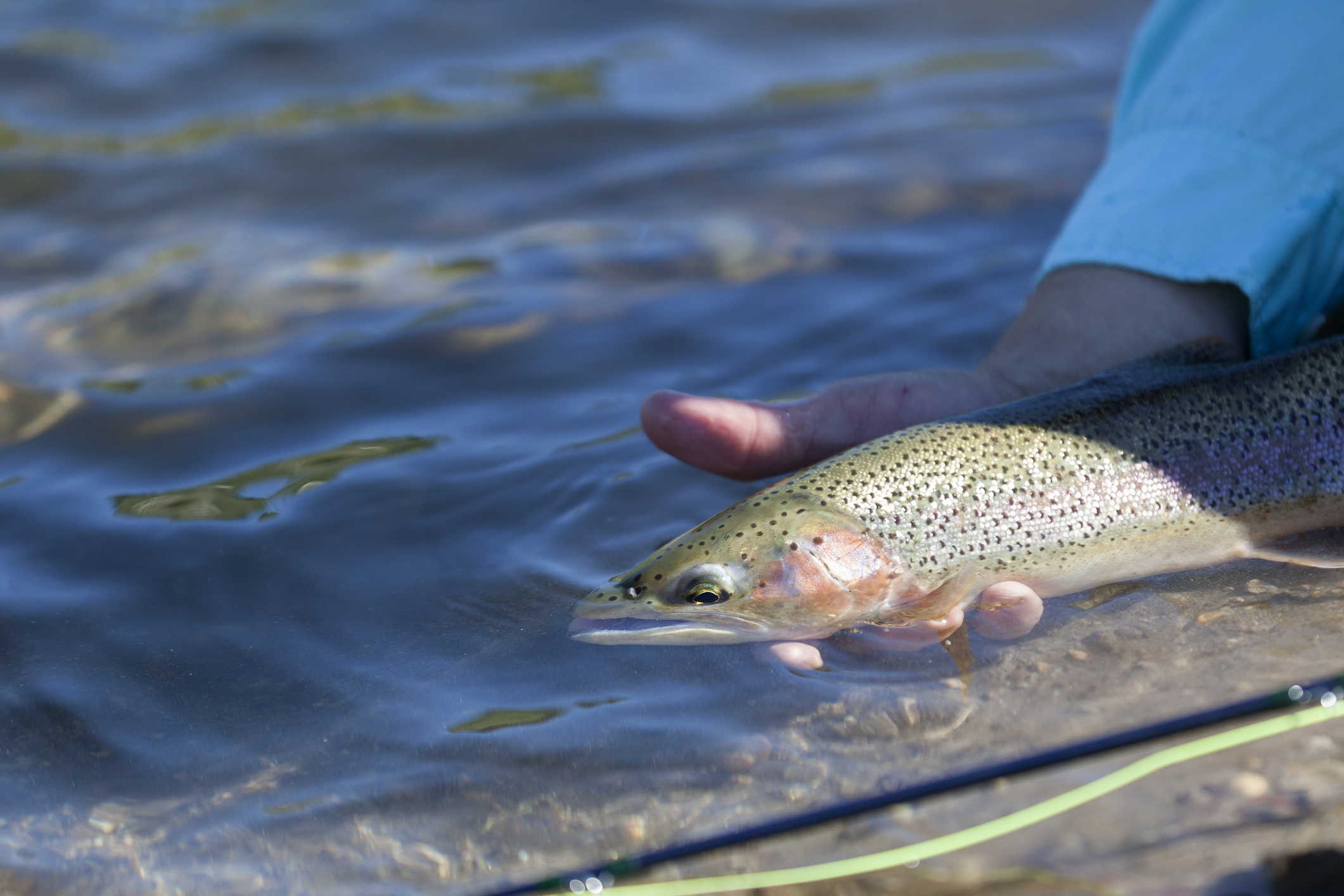The best time to go fishing can vary quite a bit, especially depending on whether you're saltwater or freshwater fishing.
However, before we dig into the details, we can make one blanket statement: fish everywhere are almost always active at sunrise and sunset. These periods of changing light levels trigger feeding behavior in all kinds of predatory fish.
Explore All-Purpose Fishing Boats
Best Time for Saltwater Fishing
Saltwater fishing will be affected by countless variables, but the major ones are:
- Weather
- Tides and Currents
- Light Levels
Weather
The weather impacts saltwater fishing in many ways. The wind is a significant factor since it can drive bait up onto a shoreline, create lots of ambient noise water-noise (which helps you remain stealthy), or make some areas churned up and muddy. Cloud cover is another factor, which we'll cover more in the section on light levels.
Weather's effect on water temperature is also notable since it will affect the places and depths the fish are most comfortable. As fronts pass through, the changes in barometric pressure can also have an effect; with many species, feeding increases immediately before a cold front but slows during and after a storm or front hits. Fishing after a front pushes through is sometimes poor and continues for a few days.
Read Next: Weather Safety Tips for Boaters
Tides and Currents
Tides and currents significantly impact success in saltwater fisheries. They influence water levels, meaning:
- A shallow area that holds fish during high tide may become a bare mud bank at low tide.
- Conversely, depressions in a channel that remain deeper than the surrounding waters can offer excellent fishing during low tide.
Generally, changing tides and moving currents are ideal for fishing, while static or "dead" tides with little movement often lead to slower fishing times. Since tides and currents are predictable, you can consult a tide chart to determine the best times for fishing before you leave the dock.
Read Next: Understanding Tides
Fish behavior in relation to tides and currents can change over time. They might feed best at the end of an outgoing tide for days, weeks, or even months, only to switch to feeding at the beginning of an incoming tide for various reasons.
Determining and tracking these changing patterns is a significant challenge in fishing, and there's one consistent rule: when you think you've figured out the fish, they'll likely change their behavior!
Light Levels
We already mentioned that daybreak and sunset are a great time to fish, which is in no small part because of the changing light levels. Many anglers believe the changing conditions make it tougher for prey to spot and evade predators. But the position of the sun isn't the only variable in play.
Other factors, such as heavy or intermittent cloud cover and rainfall, affect fish behavior. Fish often feed strongly in low-light conditions, and light levels can also determine what color lures are most effective at any given time.
While there's no perfect way to predict how fish will respond to color choice, remember this rule of thumb: look at the water and match your lure's color and finish to the watercolor. Here are a few other fishing tips to keep in mind:
- When the water condition and sunlight make the water look green, green-colored lures are often effective.
- When they make the water look brown, root beer colors are often a better pick.
- Reflective lures often work well when the sun's high and bright in the sky.
- Lures with a matte finish often do the trick in lower light conditions.

Best Time for Freshwater Fishing
Since there aren't tides in freshwater lakes and rivers, we can remove this variable. However, there still may be currents to deal with. So, the significant issues to consider as you choose the best time to go freshwater fishing include the following:
- Weather
- Currents
- Light Levels
Weather
The weather impacts freshwater fishing as much as it does in saltwater environments. Wind can push bait one way or another, waves create noise and churn the water, and clouds still affect light levels. However, the effect of fronts and changes in barometric pressure are often much more pronounced.
Rain (or a lack thereof) also has a bigger impact since it can significantly affect water levels in lakes and ponds, and lots of runoff can roil streams and rivers.
Choosing the right time to fish can also narrow your options—great rivers may turn into muddy torrents during heavy rain. However, light rain can work to your advantage by obscuring you from the fish, as the rain disrupts their view through the water's surface. This holds true whether you're:
- Fishing from shore
- Wading
- In a boat
Rain also washes insects and bait into the water, which can trigger a feeding frenzy for freshwater fish.
Currents
Currents in freshwater vary quite a bit depending on whether you're fishing in a moving body of water like a river or one that's more or less still, like a pond or lake.
As a general rule of thumb, interruptions in a moving current (like an eddy in a river) are good spots to fish, while areas of current in bodies of water that don't have much movement (like around a spillway drain near a dam) are often hotspots.
As you decide when to fish, remember that the wind can create currents in bodies of water that usually don't have them, and you can use this knowledge to your advantage when you choose where and when to fish.
Light Levels
The sun and cloud cover position have similar effects in freshwater as in saltwater. There's one more significant variable to consider in freshwater: shade. Quite often, on sunny days, freshwater fish look for shaded areas, whether it's under a dock, a fallen tree, or branches that overhand the water.
When To Fish?
You might still wonder when to fish even after considering all these factors. With so many variables at play, it can be a tough decision.
The simple answer is this: go fishing whenever your schedule allows. Yes, you'll likely catch more fish at daybreak or sunset, and aligning your trips with ideal weather or peak tides can boost your chances. But the reality is that life is busy, with commitments and limited free time. So, fish whenever you can, and remember the timeless saying: even the worst day of fishing beats the best day at work.
Read Next: Where to Fish in Saltwater
FAQs
When is the best time to fish?
Any time you can go fishing is the best time to fish!
What is the best time to go fishing from a boat?
Any time you can go fishing from a boat is the best time to go fishing from a boat! If you don't own a boat but are interested in fishing from a boat, check out our Boat Finder Tool to see which one might be best for you!
Do brackish water tides matter?
Yes, absolutely. Tides and currents have the same effects in brackish water as in saltier waters.
Hooked on fishing? Interested in buying a fishing boat of your very own? Read...


